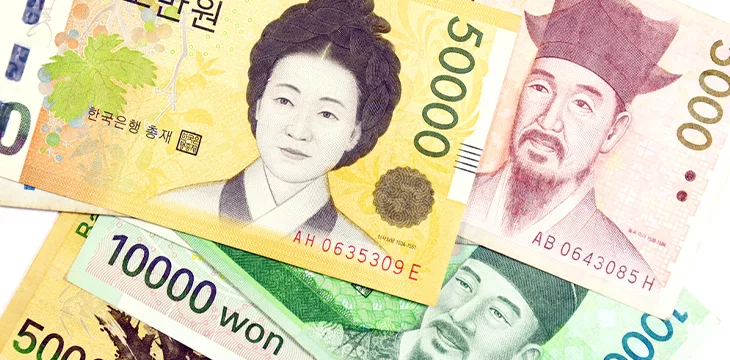|
Getting your Trinity Audio player ready...
|
South Korea is doubling down on its investments in blockchain technology as it seeks to maintain its innovator position in Southeast Asia.
The latest play by the South Korean authorities is an ambitious 20 billion won ($14.5 million) investment to support 14 projects across several verticals. The initiatives will be spearheaded by the Korea Internet & Security Agency (KISA) and the Korean Ministry of Science and ICT (MSIT).
The top project on the list is the exploration of a central bank digital currency (CBDC) and digital vouchers, with the Bank of Korea (BOK) leading the studies. The central bank tested the waters for a CBDC back in 2023 but focused its efforts on tokenized deposits and wholesale use cases.
Under the new initiative, the banking regulator is keen on experimenting with a voucher program, cutting across several use cases in the South Korean economy. The digital vouchers, a step up from the traditional plastic or paper versions, will be accessible via smartphones and are intended to stifle incidences of fraud.
Aside from fraud, regulators’ primary objectives for turning to digital vouchers are efficiency and ease of settlement. Rather than wait for a complicated settlement process, sellers are expected to receive instant payments upon receiving vouchers, dispensing the need for batching or reconciliation.
The vouchers may be used for a raft of services, including transportation, welfare, education, tourism, and retail verticals, in a manner similar to purpose-bound money (PBM).
Outside of vouchers, South Korea will funnel funds into digital badges for academic results and work experience, earmarking as much as 3 billion won ($2.1 million) to the utility. The Ministry of Justice has ambitious plans to turn to blockchain to improve document notarization and the broader legal process.
Other public sector use cases include blockchain-based rice purchases across South Korea and blockchain-based environmental protection practices in Incheon City.
Private sector use cases are not left out. CP Labs received a grant to create a portal for blockchain development, while Berry Wars and Oasis Business are probing utilities related to financial management and carbon emission reduction.
A balanced approach
Rather than throw all its eggs in one basket, South Korea is diversifying its investments in emerging technologies, particularly in artificial intelligence (AI) and blockchain. In April, the government has since invested over $7 billion on AI to remain ahead of the curve, investing in hardware to meet global chip demand.
“It is no exaggeration to say that the future of the semiconductor industry depends on AI,” said South Korean President Yoon Suk Yeol. “The semiconductor competition taking place now is an industrial war and an all-out war between nations.”
Private firms in South Korea are matching the government’s efforts to jolt the local AI scene by identifying and developing their own use cases for the technology.
To learn more about central bank digital currencies and some of the design decisions that need to be considered when creating and launching it, read nChain’s CBDC playbook.
Watch: Importance of digitalization for enterprises

 03-02-2026
03-02-2026 




